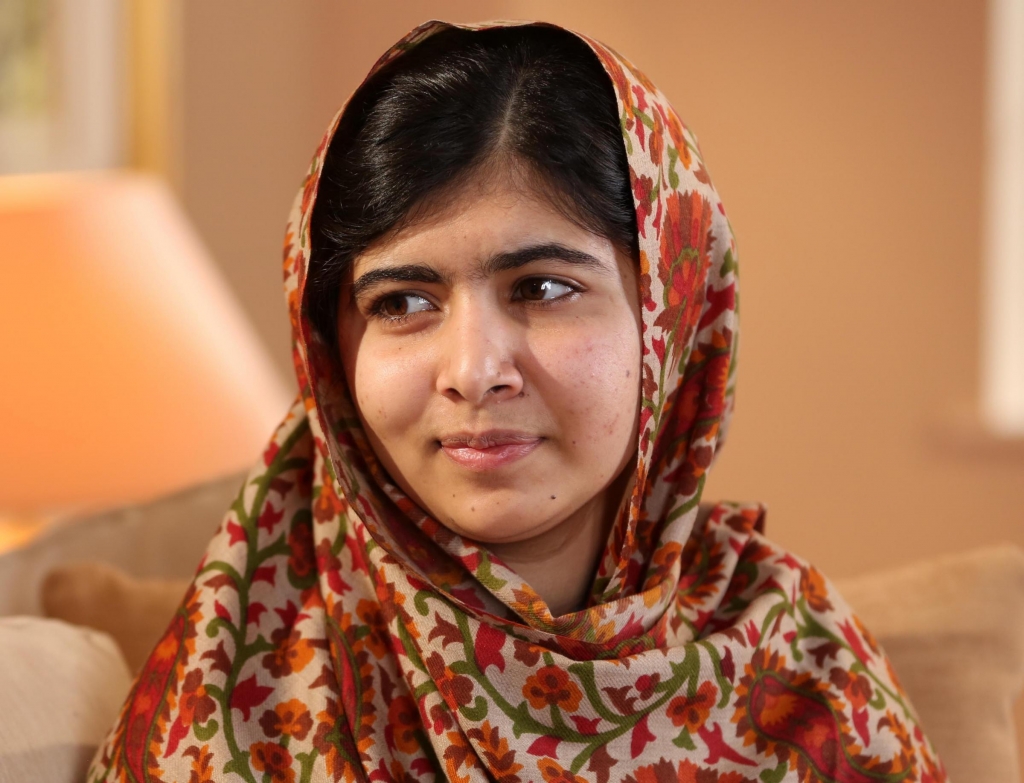-
Tips for becoming a good boxer - November 6, 2020
-
7 expert tips for making your hens night a memorable one - November 6, 2020
-
5 reasons to host your Christmas party on a cruise boat - November 6, 2020
-
What to do when you’re charged with a crime - November 6, 2020
-
Should you get one or multiple dogs? Here’s all you need to know - November 3, 2020
-
A Guide: How to Build Your Very Own Magic Mirror - February 14, 2019
-
Our Top Inspirational Baseball Stars - November 24, 2018
-
Five Tech Tools That Will Help You Turn Your Blog into a Business - November 24, 2018
-
How to Indulge on Vacation without Expanding Your Waist - November 9, 2018
-
5 Strategies for Businesses to Appeal to Today’s Increasingly Mobile-Crazed Customers - November 9, 2018
He Named Me Malala
HE NAMED ME MALALA directed by Davis Guggenheim. Although the left side of her face is partially paralyzed, Malala has become an eloquent spokeswoman for female education, and with her father, Ziauddin Yousafzai, she has traveled all over the world as an advocate, in addition to co-authoring the best-selling book, “I Am Malala”.
Advertisement
Guggenheim says, “The idea is how do I tell the story from the point of view of a girl and the way she was describing it had this, sort of, storybook”. However, Malala is such a charming and inspiring presence, and the film takes the time to make sure we see her not just as invincible, but as vulnerable, goofy and sweet.
The film opens unexpectedly, with a lovely animated sequence recounting the legend of the young woman for whom Malala was named, a 19th century freedom fighter against the British in Afghanistan.
Many people know the basic elements of the story of Malala Yousafzai, the Pakistani teenager who was the youngest person ever to be awarded the Nobel Peace Prize.
The film is an intimate collection of stories and images illustrating Malala’s life, from her early life as a child to present day. Despite his Oscar win, Guggenheimis neither a distinctive visual stylist nor an intellectually rigorous filmmaker who asks hard questions. Her detractors in the Muslim world have accused her father of ghostwriting her work, but clearly she has inherited her social consciousness and flair for language from a long line of public speakers. She said, “Many people did not think that a woman can be a leader”.
Advertisement
In the scenes with Malala’s family, she also gives endearing reminders that she is still a teenage girl. He says, “If you’re building towards Malala’s choice to step on camera and speak out against these tyrants… that needs to be at the end, and chronologically, it wasn’t at the end”. However, there are a few very jarring switches between the storylines, going from Taliban bombings to lighthearted moments of Malala talking about school, teasing her brothers or giggling about her favorite cricketers. She makes bemused observations on her British classmates who all seem to have boyfriends, and she debates Atal over whether their fellow Pashtun and superstar cricketer Shahid Afridi has lost a step with his age.





























